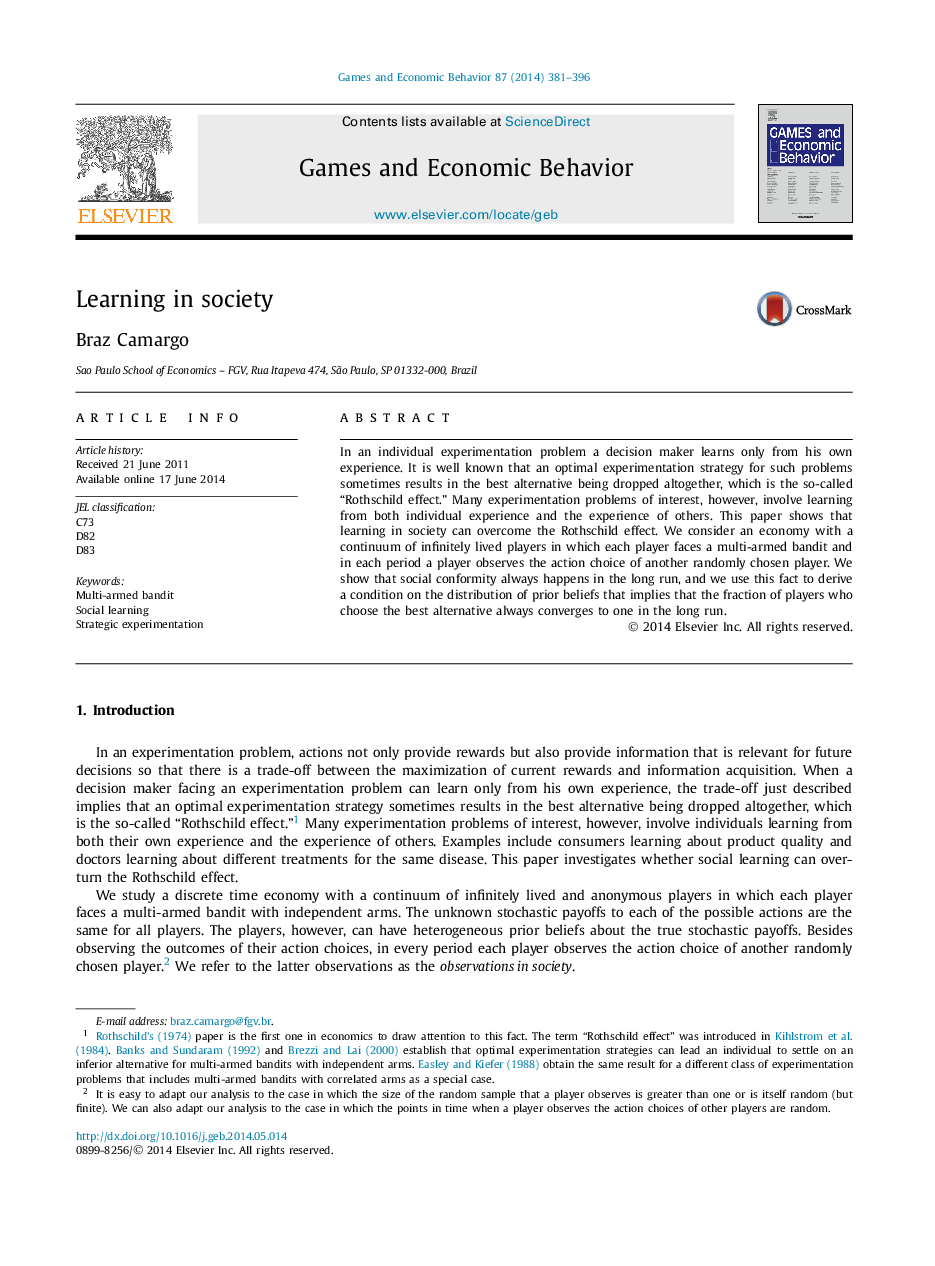| Article ID | Journal | Published Year | Pages | File Type |
|---|---|---|---|---|
| 5071865 | Games and Economic Behavior | 2014 | 16 Pages |
â¢We study social learning with bayesian and forward-looking agents.â¢We show that social conformity always takes place in the long-run.â¢We derive weak sufficient conditions for efficient social learning.
In an individual experimentation problem a decision maker learns only from his own experience. It is well known that an optimal experimentation strategy for such problems sometimes results in the best alternative being dropped altogether, which is the so-called “Rothschild effect.” Many experimentation problems of interest, however, involve learning from both individual experience and the experience of others. This paper shows that learning in society can overcome the Rothschild effect. We consider an economy with a continuum of infinitely lived players in which each player faces a multi-armed bandit and in each period a player observes the action choice of another randomly chosen player. We show that social conformity always happens in the long run, and we use this fact to derive a condition on the distribution of prior beliefs that implies that the fraction of players who choose the best alternative always converges to one in the long run.
